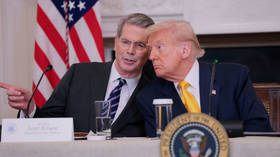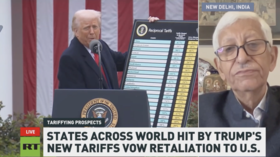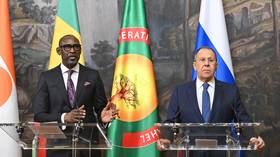Era of cheap gas over – Putin
Russian Prime Minister Vladimir Putin has announced that the time of cheap gas is over. He was speaking at a meeting of major gas-exporting countries in Moscow on Monday.
Representatives of the countries are meeting to form a new gas union.
Because of the inevitable increase of expenses in the gas area, the time of cheap energy, including gas, is coming to an end, despite the global economic slowdown, according to Putin. This is due to the fact the costs of exploration, extraction and transportation are rising, he said.
In his speech Putin called on depoliticising gas transit. The responsibility to consumer countries should be fixed, he said.
(to listen to Putin's speech at the gas-exporting countries meeting please follow the link)
He also suggested that the Gas Exporting Countries Forum (GECF) should become a regular organisation with its own charter and headquarters, which he proposes locating in Russia’s ‘northern capital’ St. Petersburg.
“We would be glad to host this organisation in the Russian Federation and are ready to give it diplomatic status and cover related expenses,” Putin said.
Following Putin’s suggestion, Qatar’s Energy Minister, Abdullah Ben Hamad Al-Attiyah, also came up with a location for the organisation’s headquarters. He offered his country’s capital, Doha, as an option.
The Gas Exporting Countries Forum (GECF) was established in Tehran in 2001 and includes Russia, Iran and other leading gas exporters. Its members account for about 73% of the world's gas reserves and 42% of production.
Gas exporters not looking to follow OPEC
The world's major gas exporting countries are discussing the formation of an organisation that some are calling a “Gas OPEC”. However, those involved insist it will differ from the petroleum exporting countries’ union.
In October Russia agreed to form a Gas Troika with Qatar and Iran. The group accounts for a third of global reserves and says it will safeguard global supplies. Now, the gas exporting countries might form a larger permanent organisation, which they insist is different from OPEC.
“What is OPEC? Basically it’s a group of countries that got together and either increased or dropped production,” said Konstantin Simonov, head of the National Energy Security Foundation, stressing that the goals for the gas alliance will be different.
“What we want to do is to separate the oil and gas markets and create new principles of trade. Now the price of gas still depends on the oil price in a sophisticated way. We want to split them up,” Simonov explained.
The idea has caused some controversy among western consumers. Japan and the US are among those strongly opposed to the plans, saying it will dictate the market and not help production.













